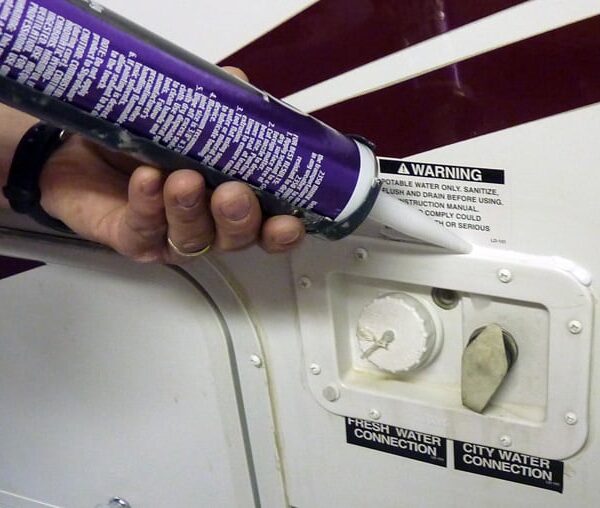
Having a fuller and more toned butt has become a popular fitness goal for many people. While exercise plays a crucial role in shaping and strengthening the glutes, the right diet can also significantly contribute to achieving this goal. In this blog, we will explore various foods that make your butt bigger, understand the science behind muscle growth, and offer tips for incorporating these foods into your diet effectively.
Understanding Muscle Growth
Before diving into specific foods, it’s essential to understand the basics of muscle growth. Building muscle, including the glutes, requires a combination of strength training and proper nutrition. The gluteal muscles, which consist of the gluteus maximus, gluteus medius, and gluteus minimus, respond well to targeted exercises and adequate protein intake.
The Role of Protein
Protein is the building block of muscles. Consuming enough protein helps repair and rebuild muscle fibers after exercise, leading to muscle growth. The amino acids in protein are crucial for muscle synthesis, making it an essential nutrient for those looking to enhance their glutes.
Importance of Healthy Fats and Carbohydrates
Healthy fats and carbohydrates also play a vital role in muscle growth and overall health. Fats provide long-lasting energy and support hormone production, while carbohydrates replenish glycogen stores in muscles, ensuring they have enough fuel for workouts.
Top Foods to Enhance Your Glutes
1. Lean Protein Sources
Chicken Breast: Chicken breast is a lean source of protein that is low in fat and high in essential amino acids. It’s an excellent choice for muscle building and recovery.
Turkey: Like chicken, turkey is another lean protein source that provides essential nutrients for muscle growth. Ground turkey can be used in various dishes, making it a versatile option.
Eggs: Eggs are one of the best foods that make your butt bigger. It is a complete protein source, meaning they contain all nine essential amino acids. They also provide healthy fats and vitamins, making them a perfect food for muscle growth.
Fish: Fish, especially fatty fish like salmon, is rich in protein and omega-3 fatty acids, which have anti-inflammatory properties and support muscle recovery.
Greek Yogurt: Greek yogurt is high in protein and contains probiotics that promote gut health. It’s a great post-workout snack that aids muscle repair.
2. Plant-Based Protein Sources
Lentils: Lentils are an excellent plant-based protein source, packed with fiber, iron, and essential amino acids. They can be added to soups, salads, or stews.
Chickpeas: Chickpeas are rich in protein and fiber, making them a filling and nutritious option. They can be roasted for a crunchy snack or added to various dishes.
Quinoa: Quinoa is a complete protein source that also provides complex carbohydrates and fiber. It can be used as a base for salads or as a side dish.
Tofu and Tempeh: Tofu and tempeh are soy-based protein sources that are versatile and can be used in many recipes. They are great for vegetarians and vegans looking to build muscle.
3. Healthy Fats
Avocados: Avocados are rich in healthy monounsaturated fats, which support hormone production and overall health. They also provide fiber and essential vitamins.
Nuts and Seeds: Nuts and seeds, such as almonds, walnuts, chia seeds, and flaxseeds, provide healthy fats, protein, and fiber. They make for a convenient and nutritious snack.
Olive Oil: Olive oil is a healthy fat source that can be used in cooking or as a salad dressing. It contains monounsaturated fats and antioxidants.
4. Complex Carbohydrates
Sweet Potatoes: Sweet potatoes are rich in complex carbohydrates, fiber, and essential vitamins. They provide sustained energy for workouts and recovery.
Brown Rice: Brown rice is a whole grain that provides complex carbohydrates, fiber, and essential nutrients. It’s an excellent source of energy for muscle-building activities.
Oats: Oats are a nutritious whole grain that provides complex carbohydrates, fiber, and protein. They make for a great breakfast option to fuel your day.
Incorporating These Foods into Your Diet
Balanced Meals
Creating balanced meals that include a mix of protein, healthy fats, and complex carbohydrates is key to supporting muscle growth. Here are some meal ideas:
Breakfast: Greek yogurt with oats, chia seeds, and fresh berries. Alternatively, scrambled eggs with avocado on whole-grain toast.
Lunch: Quinoa salad with chickpeas, mixed vegetables, and a drizzle of olive oil. Another option is a turkey and avocado wrap with whole-grain tortilla.
Dinner: Grilled chicken breast with sweet potatoes and a side of steamed broccoli. Alternatively, baked salmon with brown rice and a spinach salad.
Snacks: A handful of almonds or walnuts, a protein smoothie with Greek yogurt and fruits, or roasted chickpeas.
Post-Workout Nutrition
Post-workout nutrition is crucial for muscle recovery and growth. Consuming a mix of protein and carbohydrates within 30 minutes to an hour after exercising can help replenish glycogen stores and repair muscle fibers.
Post-Workout Snack Ideas:
- Protein shake with a banana and a scoop of protein powder
- Greek yogurt with honey and granola
- Whole-grain toast with peanut butter and sliced banana
Tips for Maximizing Muscle Growth
Strength Training
Incorporate strength training exercises that target the glutes, such as squats, lunges, deadlifts, and hip thrusts. Aim for at least 2-3 sessions per week, gradually increasing the weight and intensity.
Consistency
Consistency is key to seeing results. Stick to a regular workout routine and maintain a balanced diet to support muscle growth over time.
Hydration
Staying hydrated is essential for overall health and muscle function. Drink plenty of water throughout the day, especially before and after workouts.
Rest and Recovery
Allow your muscles time to recover by getting enough sleep and incorporating rest days into your workout routine. Recovery is when your muscles repair and grow stronger.
Conclusion
Building a bigger and more toned butt requires a combination of proper nutrition, targeted strength training, and consistency. By incorporating the right foods that make your butt bigger into your diet, you can support muscle growth and achieve your fitness goals. Focus on lean protein sources, healthy fats, and complex carbohydrates to fuel your workouts and aid recovery. Remember to stay hydrated, prioritise rest, and maintain a balanced diet for optimal results. With dedication and the right approach, you can enhance your glutes and enjoy a healthier, stronger body.








